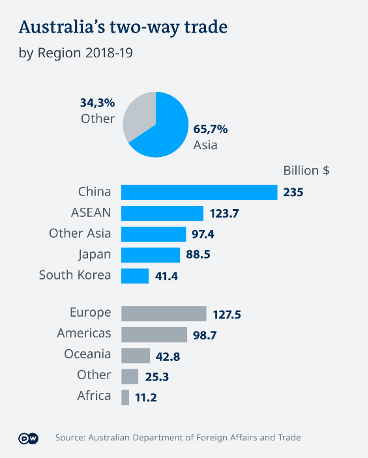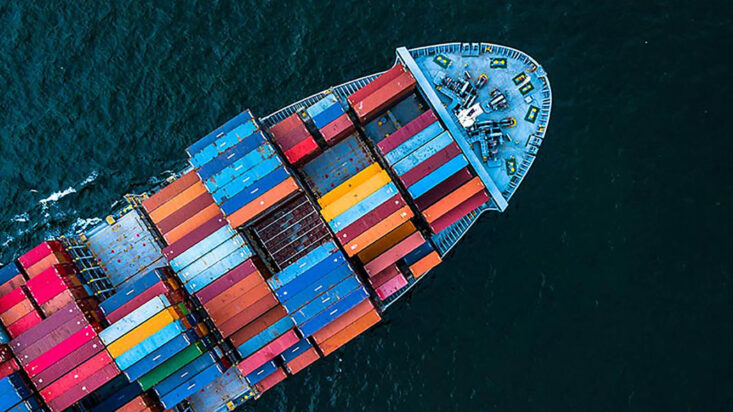China ramps up its campaign for self-sufficiency
Australia is facing yet another round of export bans after Chinese authorities knocked back tonnes of lobsters, timber from Queensland, and barley from a second grain grower. Without warning, paid goods that had arrived at ports were sent back in what is known as a ‘soft ban’ that falls outside of current trade agreements.
Authorities even left a lobster shipment stranded, making it unlikely to survive more than 48 hours. The General Administration of Customs of China (GACC) issued the typical reasons ranging from Aussie timber containing pests to lobsters being contaminated despite clear quality tests being conducted before departure. Australia has the most stringent regulatory and bio-security controls in the world. It’s obvious what is going on here, the message is clear: China is kneecapping Australia as punishment.
The move follows China’s recent ban on coal imports and comes against a backdrop of trade punishments aimed at hurting Australia in retaliation for calling an international probe into the origins of the Coronavirus. But more broadly, to reset the trade relationship, not unlike the US is seeking to do with China at the same time. In 2020 alone, China has banned Queensland timber, wheat, barley, sugar, red wine, logs, coal, the A$700 million lobster trade, copper ore and concentrate. A dirty tactic in any playbook. PM Scott Morrison told local radio station 2GB, “we are an open-trading nation, mate, but I’m never going to trade our values in response to coercion, from wherever it comes.”
So, what’s next? Iron ore and LNG?
While some economists appear confident China will remain the top destination for Australia’s iron ore shipments, it seems more likely that this diplomatic spat could see Beijing go all the way, irrespective of the economic cost. Australian iron ore accounts for roughly 60% of China’s total imported iron ore. Going down the path of banning iron ore will hurt domestic steel producers and will come at a cost to Chinese growth at time when Beijing is looking to release stimulus into construction and infrastructure. Exports worth up to $19 billion a year have been disrupted with an additional $28 billion on the chopping block. The CCP also recently announced its intention to seek self-sufficiency in many key production sectors over the decade ahead.
The answer is simple: Australia’s over-reliance and dependence on China has put us in a vulnerable position. We cannot have all our eggs in one basket anymore. Australia must look for other countries to replace China.

Prime Minister Scott Morrison appears to be on the ball, actively forging relationships with India, Vietnam, Indonesia and countries in the Pacific region. According to the Department of Foreign Affairs and Trade, senior officials recently “met by videoconference with representatives from the foreign ministries of India, Japan and the United States on 25 September for Quad consultations on the Indo-Pacific region.” The high-level meeting of the “Quad” was to also co-ordinate policies in the face of a rapidly rising China. This could provide Australia with an opportunity to shift its trade reliance away from China and onto the Quad members, such as Indonesia, Vietnam and South Korea.
China accounts for roughly one third of Australia’s exports, or about $169 billion. To add to it, Australian university students, tourism and foreign investment are predominantly driven by Chinese demand. This makes it almost impossible to replicate the entire level of trade done with China with India, Japan and the US. They lack the scale and demand for Australian energy, iron ore and commodities.
The position we find ourselves in now is not all that different from the position in which Germany will soon find itself. China is Germany’s largest trading partner. Germany produces significantly more cars in China than domestically. The two countries were tied to the hip. But Germany, like Australia, was forced to balance its prosperity with its own values and interests. Recently China’s ambassador to Germany threatened Berlin and said, “If Germany were to make a decision that led to Huawei’s exclusion from the German market, there will be consequences.” Sound familiar? It should. China tried this with Australia after it banned Huawei and ZTE from its fifth-generation wireless technology infrastructure in 2018 and stood up for its interests.
The fact of the matter is: Australia needs China. But China does not need Australia. Iron ore is the only Australian export that China needs, and it can be alternatively sourced, although Chinese steel mills consider Australia’s product to be premium-quality. Our prosperity depends on China but not at the cost of our values and interests. As Australians we should stand up for our values especially on issues such as human rights, cyber-security, and the independence of Hong Kong or Taiwan. The economic blackmail China uses to bully its partners is not just confined to Australia or Germany. China is the biggest trading partner of 132 countries. So, we are not alone.
Rather than attacking China as a lone warrior, we need to be more strategic and protest from within a group of similarly minded countries. At the same time, we also need to reduce our dependence on China and start partnering with like-minded countries.











